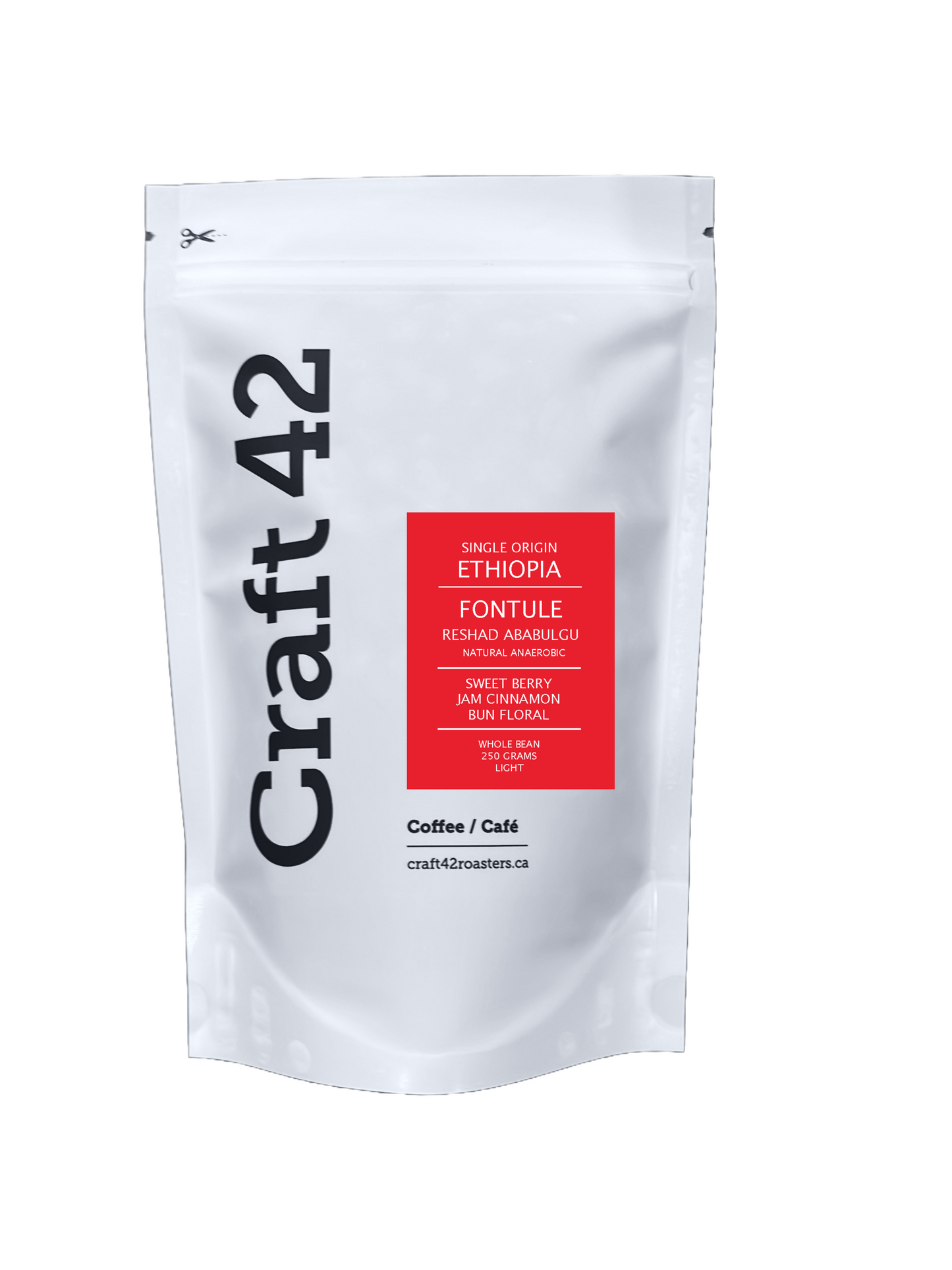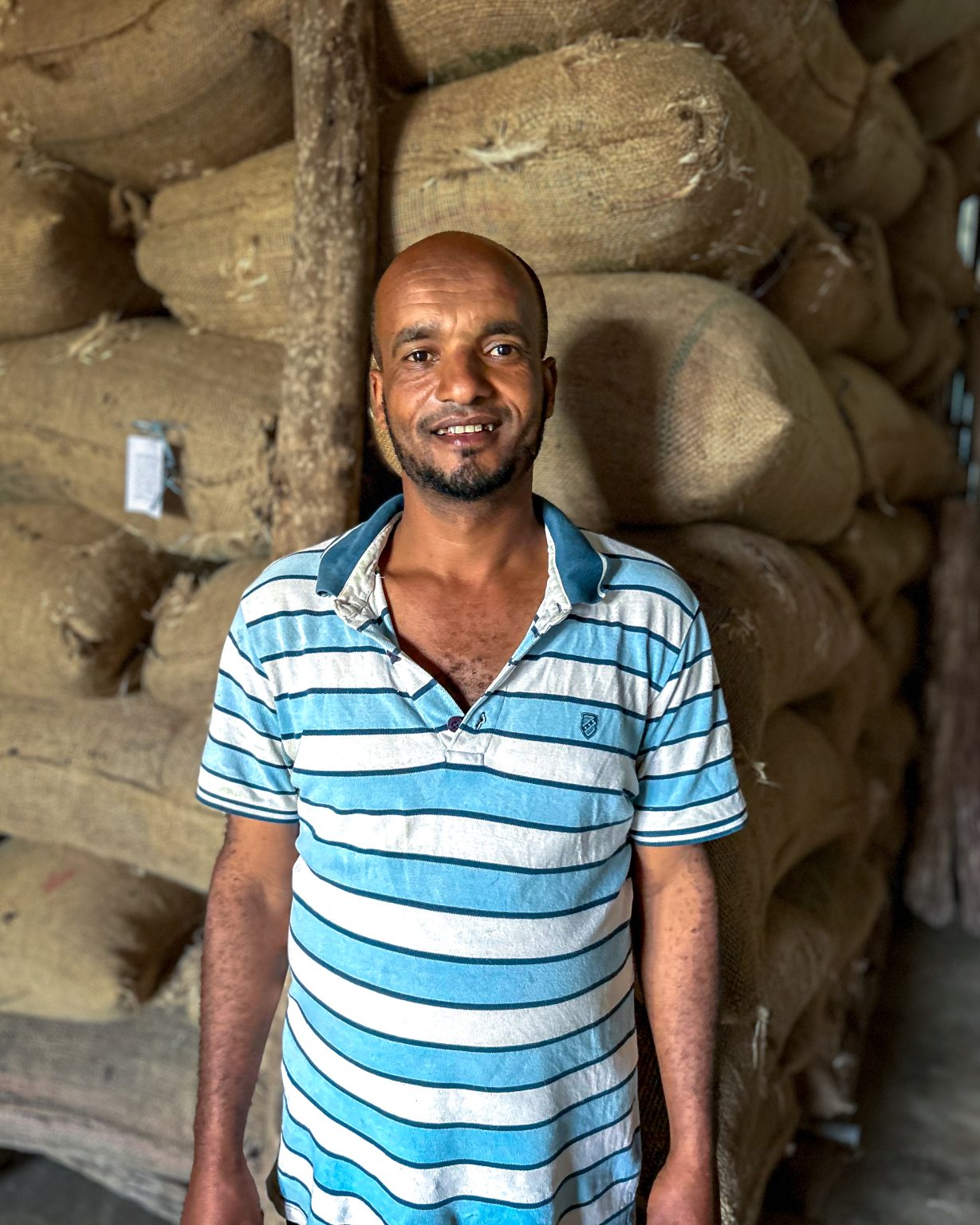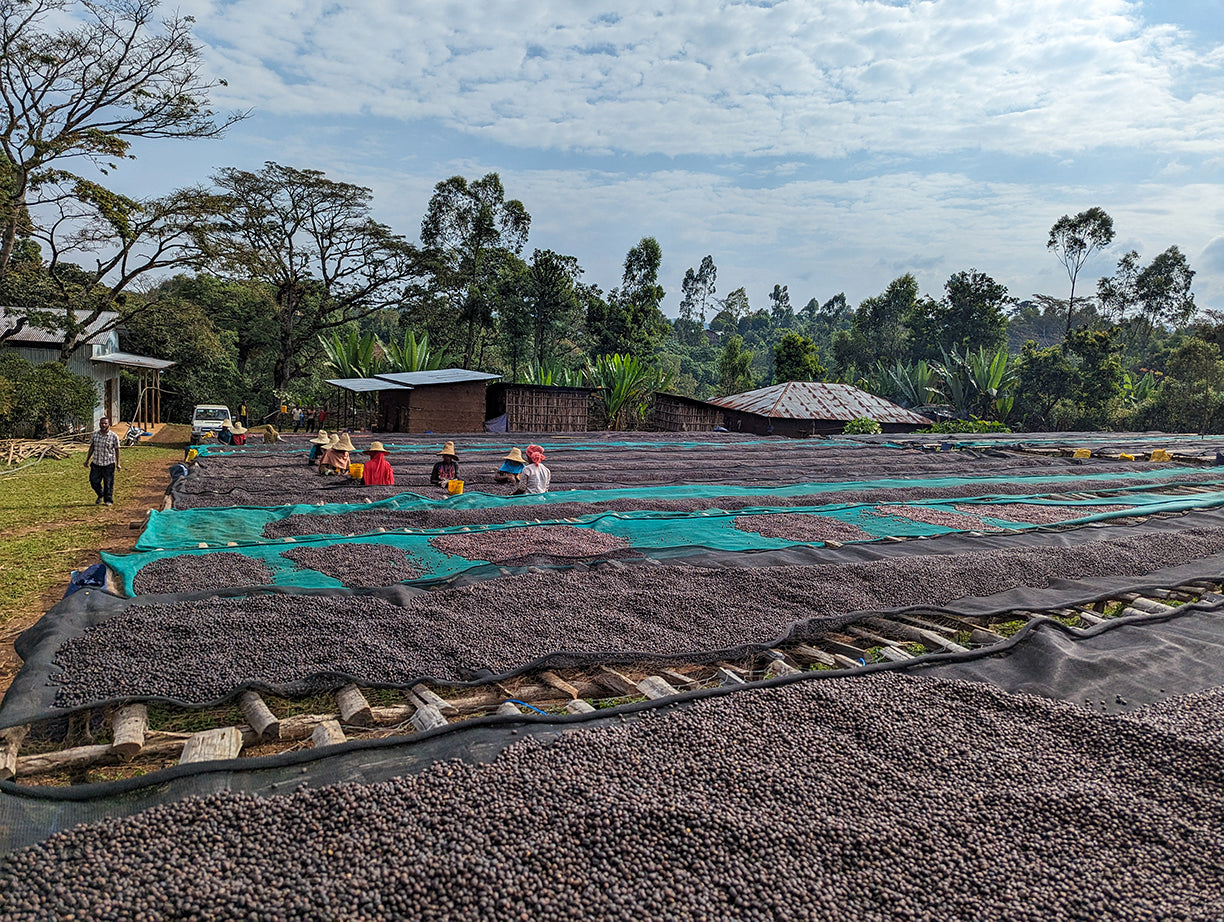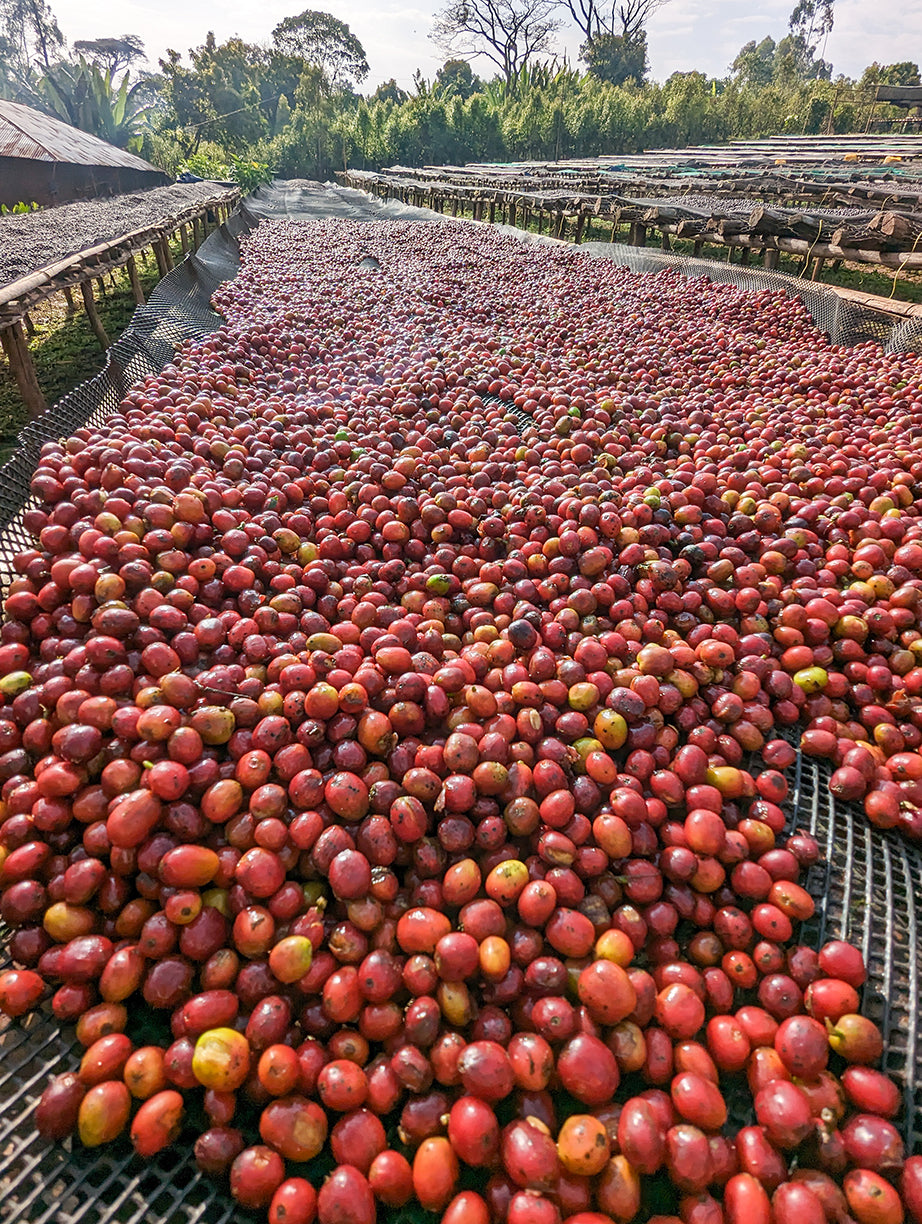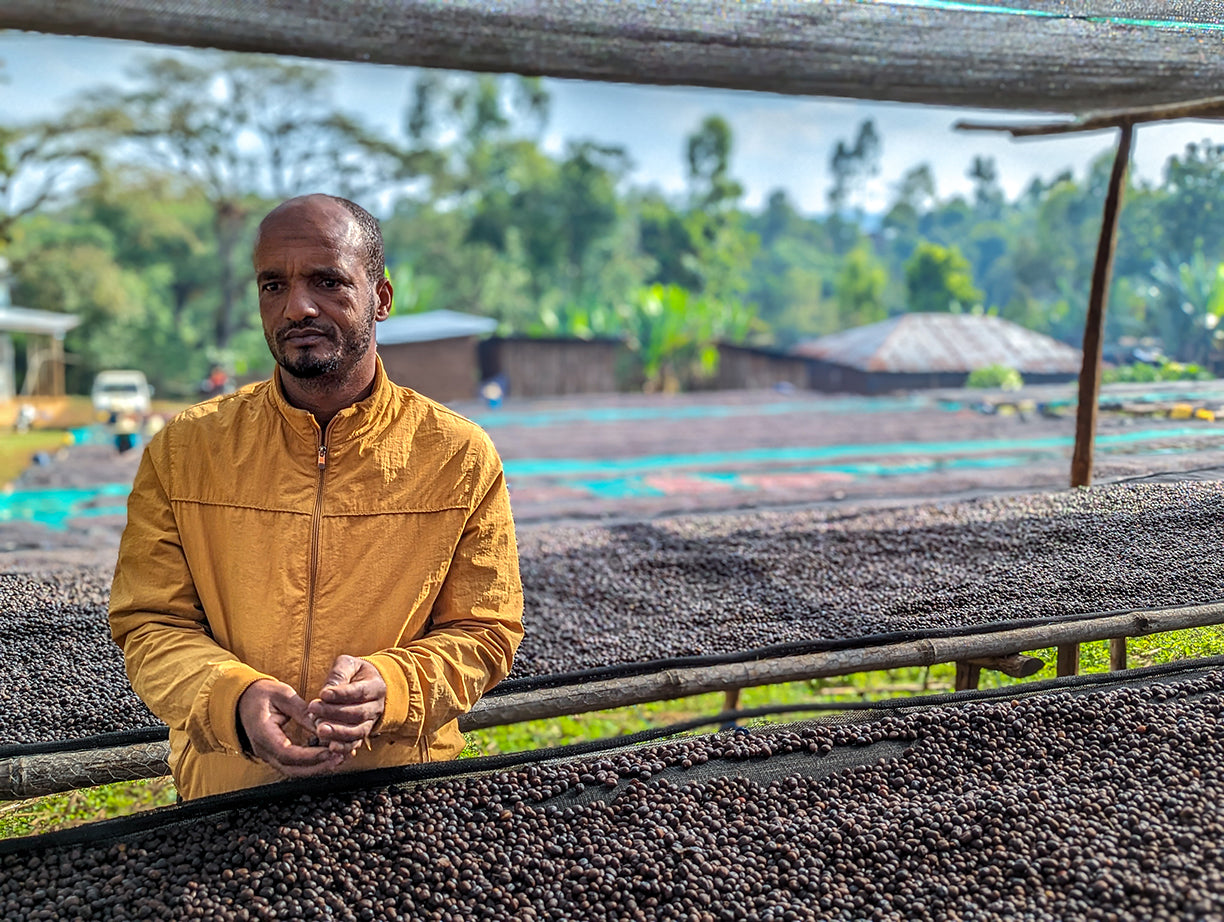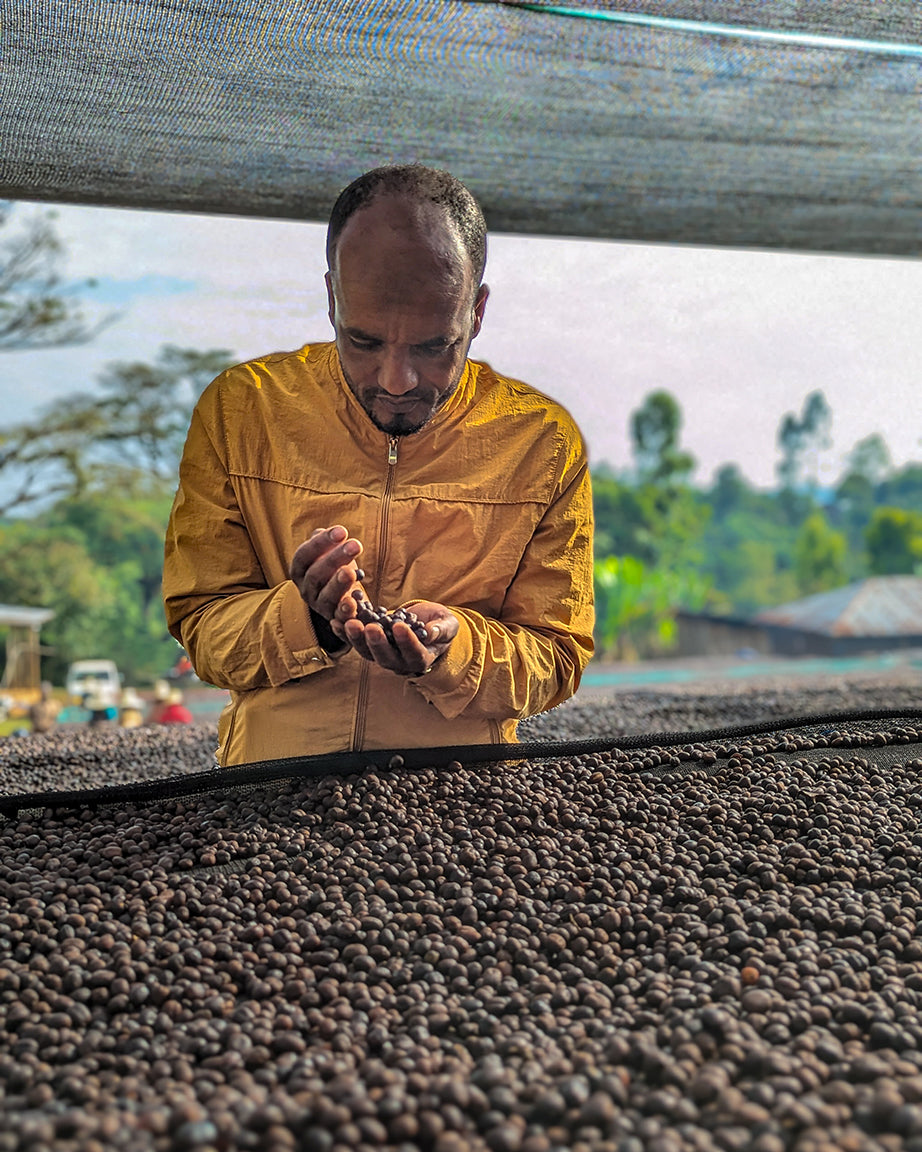Fontule - Reshad Ababulgu - Natural Anaerobic - Ethiopia - Light
Fontule - Reshad Ababulgu - Natural Anaerobic - Ethiopia - Light
SWEET BERRY JAM, CINNAMON BUN, FLORAL
Jimma , Agaro, Ethiopia
Delightful, welcoming coffee. Perfect representation of high altitude anaerobic Ethiopian coffee. Versatile for all extraction methods. Delight in floral and vibrant berry flavors with each sip, a signature of Ethiopian coffee beans from elevated grounds.
Each Bag Contains Whole Coffee Beans
Couldn't load pickup availability
FONTULE
Reshad Ababulgu
Jimma, Agaro, Ethiopia
Process: Natural Anaerobic
Fermentation: 36 hrs in sealed fermentation tanks
Drying time: 24-26 days dried on raised beds with shade netting
Altitude: 2000 masl
Location: Jimma, Agaro, Ethiopia
Community Context
On our importers way back to Jimma from visiting producers in Gera, Moata’s phones were ringing constantly. A few of those calls came in from Rashad Ababulgu and Mustefa Abasadi, two coffee farmers located near to the Biftu Gudina Cooperative who had, for years, been selling cherry Duromina. It was starting to get dark and we had a way left to go, so instead of taking a detour, we arranged to meet them on the side of the road a few kilometers from their farms. Both had received drying materials and support through USAID, gotten export licenses and in the last year had sold coffee for export destined for Korea—and had friends in their community, other smallholders like Abo Hussein, who were similarly positioned to begin direct export. As the direct export market continues to develop in Ethiopia, we’re eager to seek out and deepen relationships with all-star producers who, for years, have contributed coffee to some of the cooperatives best known for quality. With their own export licenses, they’re able to capture higher prices and market their coffee and brand year-overyear to returning buyers like Crop to Cup. Reshad is a second-generation coffee farmer who farms on land that has been in his family for 60 years; 20 years ago, his father, who had inherited the land from his grandfather, passed it to Reshad. He replanted using modern varieties and techniques 13 years ago. He lives less than a kilometer from the farm with his wife and three children. He told us, ‘I want to focus on quality and earn better which helps me to support my family and community.
Coffee is my only income source and hopefully the future will be bright working you.’
Country Context
Ethiopia is a coffee powerhouse. It’s the birthplace of the plant, the seventh largest producing country in world, and one of the world’s leading consumers of coffee as well. Because coffee is such a vital part of the economy in Ethiopia, the government has a hand in it, making for an interesting coffee context. Ethiopia is proudly a nation that has never been colonized, and the longtime government has been from a tribal minority (the Tigray). In 2018 there was a coup that installed an Oromo president – the largest tribe in Ethiopia. Its namesake region, Oromia, sprawls awkwardly south and west from the capital city Addis Ababa – and covers the majority of coffee territory in Ethiopia.
Of the over 100 million people in Ethiopia, almost 15 million rely on coffee for income. Coffee accounts for 60% of foreign income, and is about 40% of total country exports. For the scope (Africa’s largest producing country) and importance of the industry, there’s a surprising amount of consolidation. Things are constantly changing in Ethiopia but for the most part, buying happens in three ways, from an Exporter who buys off the ECX, from a Coop Union which markets coffees collected from member coops, or direct from a single producer or estate (as long as they have a farm over 2 hectares, they can export). You can see more about these below.
ECX: The Ethiopian Commodity Exchange was established in 2008, with good intentions. The idea was to make market prices / price discovery available to rural sellers. The ECX installed tickers at 32 rural sites and also push notifications to a quarter million subscribers. The idea was, that this would protect farmers from predatory buyers. The ECX established 55 physical warehouses, where coffee is held across the country. Farmers bring parchment to the warehouse where it is graded by cuppers and given a designation. Contracts are sold to buyers that have seats on the auction. Contracts are all for 30 bag quantities, and buyers do NOT get to cup the lots before purchasing. When the ECX first opened, the mandate was that coffee had to go through the ECX. Quickly, warehouses overflowed, prices plummeted. There was also an outcry from specialty coffee buyers who wanted to work directly, or taste coffees before contracting. Certainly, it was a difficult launch. There’s a good ‘Market Watch’ piece on it called, The Market Maker. Those regulations were soon relaxed, allowing for some direct trading to continue with individual farms. However, the regulations still maintained that buyers and sellers be de-coupled. Previously, exporters often owned wetmills in Ethiopia and could buy cherry and sell green. Now, wetmills are required to sell to the EXC, and exporters are required to buy from the ECX. In other words, wetmills cannot not directly sell to exporters.
As it stands now, the only way to get exceptional coffee from the ECX is to buy it, then cup it see if you like it. If you don’t, you’re stuck. This process isn’t practical for a specialty buyer, so oftentimes exporters will allow specialty buyers to cup through their purchases from the ECX and select the ones they like – the exporter can then use the coffees not selected to fill a commodity contract for another buyer. While this can result in good coffee, the traceability is lost and the ability to replicate that coffee next year is only as good as the cupper and relationship with your exporter.
COOP UNIONS: When we first arrived to Ethiopia in 2013, there were only 5 operating Unions organized by geography (Oromia, Sidama, Yirgacheffe, Limmu and Bench Maji). Oromia (extending as it does) is the largest, with 405 member coops, followed by Sidama Union, tiny in comparison with just over 50 coops represented. Yirg Union is smaller still. Coop Unions have a standard model in Ethiopia: buy coffee at the auction price, sell coffee to a buyer and collect 20% of the profit as service fees. From, there they split the remaining profit 70/30 with the coops they bought from. Unions are generally known in Ethiopia as FTO suppliers. Coffee that move through the ECX do not carry certifications, so the only place that you can get certified options are Unions and private farms.
Recently, a new Coop Union was established called Kata Maduga. It brought together coops in Jimma that were formed by Technoserve work, and previously managed by the Oromia Union. These coops felt that their qualities were exceptional and that they could better represent themselves. It is now in its 3rd harvest, is a healthy Union and growing. We’re big fans.
PRIVATE FARMS: Private farms are self-explanatory in many ways. Since 2008 and the establishment of the ECX, private farms have been the one option that preserve relationships and traceable coffee. The issue has been that Ethiopia is so populous, that farms large enough to fill a container, or produce an export size volume of
